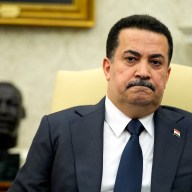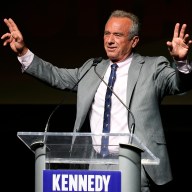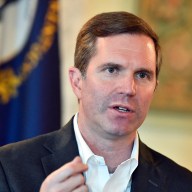Trevor Park had his first seizure at age 13 on the way to a Toronto Maple Leafs hockey game. Seizures are scary — they come suddenly and can make people with epilepsy thrash so violently that they hurt themselves.
All through his teens and early 20s, Trevor continued to have seizures. He was taken to umpteen medical appointments and prescribed one drug after another. He once told his parents that he felt like a science experiment.
As Trevor grew older, he became self-destructive, doing things that he knew triggered seizures — drinking, partying, driving dangerously and working late shifts.
“The low point,” his mother Ellen Novack, from Thornhill, Ont., tells Metro, “was when he was drugged 16 hours a day and had no quality of life.”
Unable to find a workable solution in Canada, the family travelled to the Andrews-Reiter Epilepsy Research Center in Santa Rosa, California. Trevor was able to climb out of the darkness of his disease, thanks to a novel approach to epilepsy developed by Donna Andrews, a PhD in neuropsychology and Dr. Joel Reiter, a Harvard-educated neurologist.
The approach is based on treating each person as an individual, finding out where the damage is, identifying the triggers, and teaching them ways to bring seizures under control.
“What the patient thinks, feel and does has everything to do with his or her seizure,” explains Andrews.
For instance, if patients have damage in the left temporal lobe where language is stored, they are under pressure for having a seizure when trying to communicate something important; they get overloaded very quickly.
If they know that, they can put it in writing first and discuss it when the pressure is off.
“Vicious cycles have to be broken,” she says. “This is what empowers them.”
Trevor, now 26, is seizure free and working in sales.
“He has the tools to control his epilepsy and it will be his decision if he is compliant or not,” says Novack.
She and Park are hosting a conference starting this Friday, Oct. 14 at the University of Toronto, to promote the innovative epilepsy treatment that helped their son.
For more information, visit epilepsyconference.com.
















